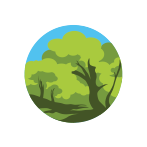English
Statement of intent for English at Theydon Bois Primary School
At Theydon Bois Primary School, our aim is to develop confident, articulate, and imaginative users of the English language. We believe that a high-quality English education is essential in enabling our pupils to communicate effectively, express themselves creatively, and engage fully with the world around them.
Through our English curriculum, we aim to foster a love of reading, writing, and spoken language. Pupils are encouraged to explore and enjoy language in a variety of contexts, becoming independent and enthusiastic readers, writers, speakers, and listeners. They engage with a wide range of high-quality texts—fiction, non-fiction, poetry, drama, and media—to become both critical thinkers and creative performers.
Children learn how language works through a focus on patterns, structures, vocabulary, and grammar, which they apply confidently across all areas of the curriculum. They are supported to use language purposefully and appropriately in a range of spoken and written contexts, selecting vocabulary and grammatical structures that match the intended audience and purpose.
We are committed to ensuring that all children:
- Enjoy using language and feel confident in expressing themselves;
- Develop as fluent, accurate readers with strong comprehension skills;
- Become independent and effective writers across a range of genres;
- Use a range of spelling strategies and apply them in their work;
- Speak clearly and listen actively in a variety of situations;
- Write with a fluent, legible handwriting style and take pride in their presentation;
- Understand the relevance of language across all areas of learning and life.
At Theydon Bois Primary School, English underpins all learning. Through our rich, inclusive, and engaging curriculum, we strive to empower every child with the skills and confidence needed to thrive both academically and personally.
How do we teach English at Theydon Bois?
For Key Stage 2:
Daily English lessons, developing the use of the Talk for Writing sequence for learning.
5 reading sessions using Complete Comprehension (plus supplements) each week, delivered in whole class reading sessions allowing the children to learn both from their teachers and discuss texts with their peers, developing their reading fluency and comprehension.
Weekly handwriting lessons.
Up to 3 x weekly spelling lessons.
The teaching of punctuation and grammar is incorporated throughout the Talk for Writing approach.
English lessons are, where possible, linked to the classes’ current topic and may be cross-curricular when suitable, using the school’s curriculum map as a structure for planning a skills based curriculum.
For Key Stage 1:
Daily English lessons, developing the use of the Talk for Writing sequence for learning.
5 reading sessions: either Complete Comprehension/Guided Reading each week, providing each child with the opportunity to work with their teacher in a small group, developing their reading fluency and comprehension.
Daily systematic synthetic phonics sessions using SuperSonic Phonic Friends.
(Those pupils who have reached expected levels in phonics will move to a daily SPAG session, focusing on their ability to apply skills and knowledge acquired to become fluent readers and increasingly accurate spellers)
3 x weekly handwriting lessons.
Daily ‘story time’ to promote reading for pleasure and to experience ‘model reading’ by an adult
For EYFS:
Daily English lessons, developing the use of the Talk for Writing sequence for learning.
Daily systematic synthetic phonics sessions using SuperSonic Phonic Friends.
Daily handwriting sessions.
Daily ‘story time’ to promote reading for pleasure and to experience ‘model reading’ by an adult.
Daily child initiated opportunities and focussed challenges available in areas of continuous provision.
Reading
Phonics
In order to learn how to read easily, fluently and with good understanding, both for pleasure and for information, pupils need to learn how to decode letters and words using phonic knowledge and blending skills, through a systematic and rigorous phonics programme.
At Theydon Bois Primary School, we follow Supersonic Phonic Friends (SPF), with enhancements from Phonics Play, Espresso and Busy Things to teach and assess phonics. Sessions are delivered each day to the whole class, starting in Reception and continuing until Year 2 and into Year 3 if necessary (from 2023). Currently, Year 3 and above are using the ‘Suze Super Spelling Stars’ spelling program as part of the Supersonic Phonic Friends scheme. Children who require additional support in phonics may participate in focussed intervention groups.
Supersonic Phonic Friends is a systematic and synthetic program, which is the government's preferred method for teaching phonics. This means it teaches children the sounds (phonemes) associated with letters and letter combinations (graphemes) in a specific, structured order. It emphasises blending sounds to read words and segmenting words into sounds for spelling. The program has a clear progression document that ensures new learning builds upon previously taught knowledge.
The program uses a multisensory approach to engage children, which is a key recommendation for effective phonics teaching. This includes:
- Characters and rhymes: Each literacy skill and sound is represented by a friendly woodland character, like "Segmenting Seb," "Building Bill," and "Blending Ben," which makes the learning process memorable and fun.
- Actions and Movement: The use of physical actions and rhymes helps to reinforce the connection between sounds and letters.
Individual Reading
Reading material (currently made up of books from the Oxford Reading Tree scheme and Collins Big Cat Phonics, amongst others) is organised into coloured book bands so that we can ensure pupils are reading material of an appropriate level and can monitor progress. These books are matched closely to the children’s phonic level. Children are all encouraged to read their scheme books regularly at home, preferably with an adult. Younger pupils will also be given regular opportunities to read with an adult at school. Children will receive new books weekly from school, with progress and frequency detailed in the home/school reading record book. Parents are required to write a comment in their child’s reading record at least 4 times per week. In EYFS and Key Stage 1 (where appropriate), children are encouraged to read their books more than once to promote fluency, expression, comprehension and pleasure.
In order to encourage ‘reading for pleasure’ we suggest pupils choose a ‘non-scheme’ book from our Library Bus to enjoy reading or sharing with an adult. Sometimes children in UKS2 supplement their individual reading with a book from home that has been approved (in line with the book bands) by the class teacher.
Guided Reading
Although many reading skills are modelled and practised throughout the timetable (particularly during English lessons), guided reading sessions provide one of the main opportunities to explicitly teach and assess the National Curriculum programmes of study for reading. They ensure that pupils experience high quality interaction with the teacher, within a small, similar-ability group, to enhance and develop their reading skills at a level appropriate for them.
EYFS: Guided Reading is introduced and taught twice per half term
KS1: Guided Reading is completed alongside Complete Comprehension, in blocks, on a carousel timetable so that children read with different adults and to ensure a deep coverage of a text.
KS2: Children have moved onto whole class reading sessions.
Whole Class Reading
Whole class reading sessions are key in how we teach children to read. It allows us to focus on a range of comprehension skills in more detail.
EYFS: Daily whole class reading included in SPF program.
KS1: Daily whole class reading accessed through Complete Comprehension.
KS2: Daily whole class reading accessed through Complete Comprehension.
We utilise the Schofield & Sims - Complete Comprehension scheme as a structured and explicit framework for teaching reading comprehension. This program provides a high-quality text for each week, allowing for a deep dive into the content and context. Our weekly comprehension lessons will focus on the following key components:
- Immersion in the Text: Each week, a chosen text extract will be the focus of our lessons. Pupils will have opportunities for whole-class, group, and individual reading, ensuring everyone is immersed in the text and can access it at their appropriate level.
- Vocabulary Development: We will explicitly teach and explore new and challenging vocabulary encountered in the text. Pupils will be encouraged to infer meanings from context, use dictionaries, and apply new words in their own spoken and written language.
- Comparative Analysis: We will use the chosen texts to explore different genres and text types. Pupils will be taught to compare and contrast literary features, structures, and purposes, broadening their understanding of how language is used in different contexts.
- Explicit Comprehension Skills: We will explicitly teach and model different areas of comprehension, such as:
- Inference and Deduction: Reading between the lines to understand implicit meanings.
- Retrieval: Finding and quoting specific information from the text.
- Summarising: Condensing key information and combining ideas.
- Authorial Intent: Understanding the author's purpose, viewpoint, and choices.
- Text Analysis: Identifying literary devices like metaphors, similes, and personification.
- Independent Application: After a period of shared learning and modeling, pupils will be given opportunities to independently answer a range of questions, applying the comprehension skills they have been taught. This allows for assessment of understanding and identification of areas for further support.
This structured approach ensures a consistent and progressive development of reading comprehension skills across all year groups, building a strong foundation for lifelong learning and a genuine appreciation of literature.
Parent Meeting Guidance on Reading
Phonics reading and writing Reception
KS1 Supporting parents with reading
Year 3/4 Supporting parents with reading
Year Y5/6 Supporting parents with reading
The reading gems below are to help when reading with your children, our current focus is on define, infer and retrieve
Visit the links below to see some great Websites
|
|
|
|
|
|
|
|
|
|
|
|
|
|
|
|
|
|
|
|
|
|
|
|
|
|
|

